Producing asphalt in the rainy season is never easy. Contractors in Indonesia and other tropical regions face constant challenges—wet aggregates, unpredictable weather, tight deadlines, and transportation delays. When you need to deliver 400 tons of asphalt for a project, choosing the right mini asphalt plant becomes critical. The right choice can help you maintain quality, meet schedules, and control costs, even in difficult weather conditions.
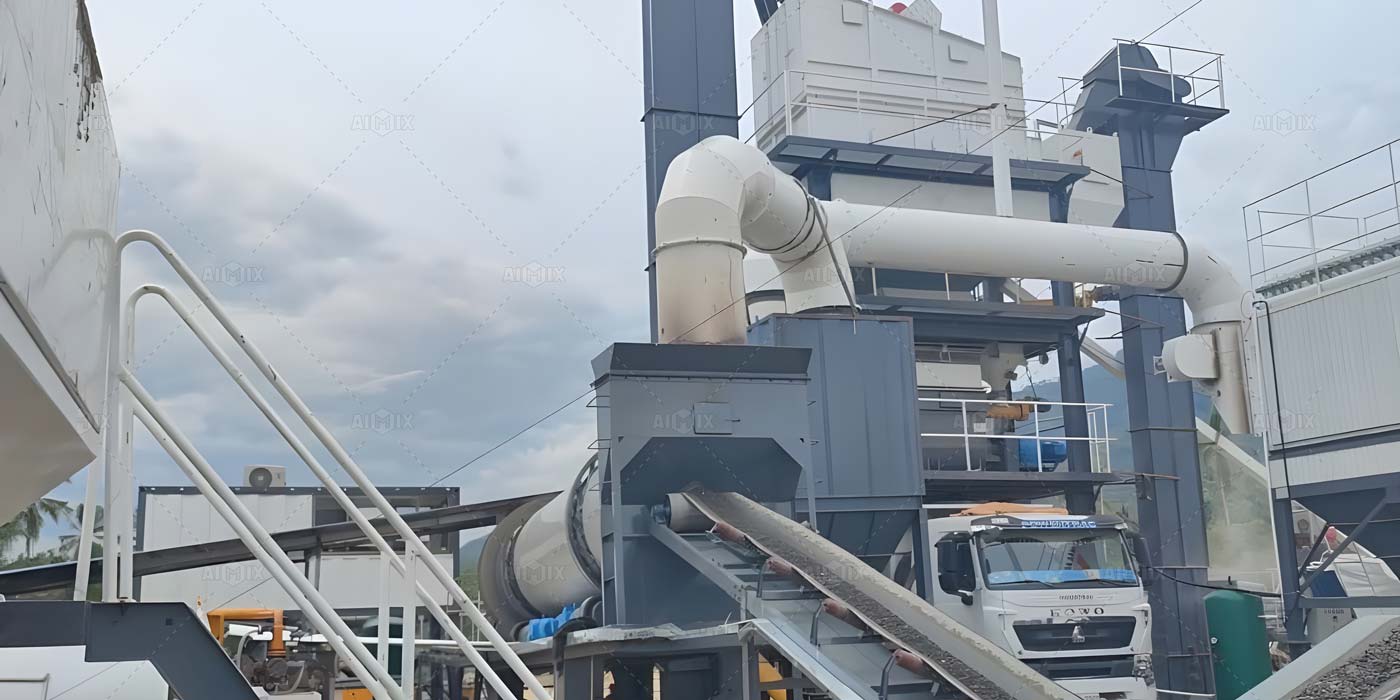
Understanding the Challenges of Rainy Season Asphalt Production
Rain affects more than just the construction site. Moisture in aggregates can increase drying time, slow down mixing, and reduce fuel efficiency. Roads and job sites may become muddy, making transportation harder. In some cases, production stops because materials cannot be delivered in time.
Therefore, when selecting a small asphalt plant for sale for the rainy season, contractors must consider not only capacity but also drying efficiency, mobility, and reliability. This is especially important when your target is 400 tons of asphalt within a set time frame.
Why Mini Asphalt Plants Are Suitable for 400-Ton Projects
Many contractors believe that only large stationary plants can handle significant production volumes. In reality, modern mini asphalt plants can deliver impressive output with the right setup. For a 400-ton target, a plant with 40–80 TPH (tons per hour) capacity can easily meet production needs in just a few days, even with rain delays.
Additionally, mini plants offer flexibility. They can be set up close to the project site, reducing transportation time and minimizing the risk of asphalt cooling during delivery. This flexibility is crucial in rainy conditions when traffic and road access can be unpredictable.
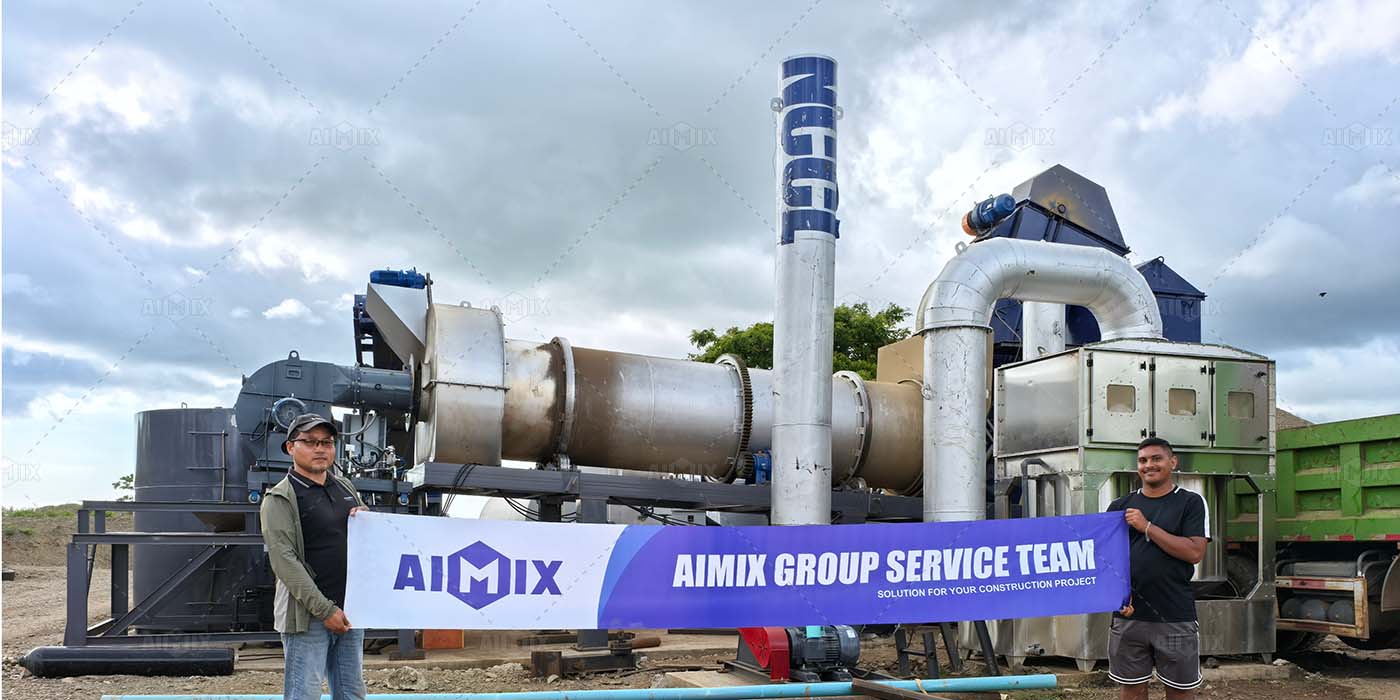
Key Features to Look for in a Mini Asphalt Plant for Rainy Season
When the weather works against you, every feature matters. Look for the following:
1. High-Efficiency Drying Drum
A powerful drying drum removes moisture quickly, ensuring that wet aggregates do not slow production. This directly improves fuel efficiency and mixing quality.
2. Weather-Resistant Design
Sealed components, covered conveyor belts, and water-proof electrical systems keep the plant running safely in wet conditions.
3. Mobility and Fast Setup
Mobile mini asphalt plants can be relocated closer to the project site. This not only saves transport time but also allows for quick adaptation to weather changes.
4. Consistent Mixing Quality
Even in high humidity, a good mixer ensures uniform asphalt temperature and proper coating of aggregates, reducing the risk of segregation.
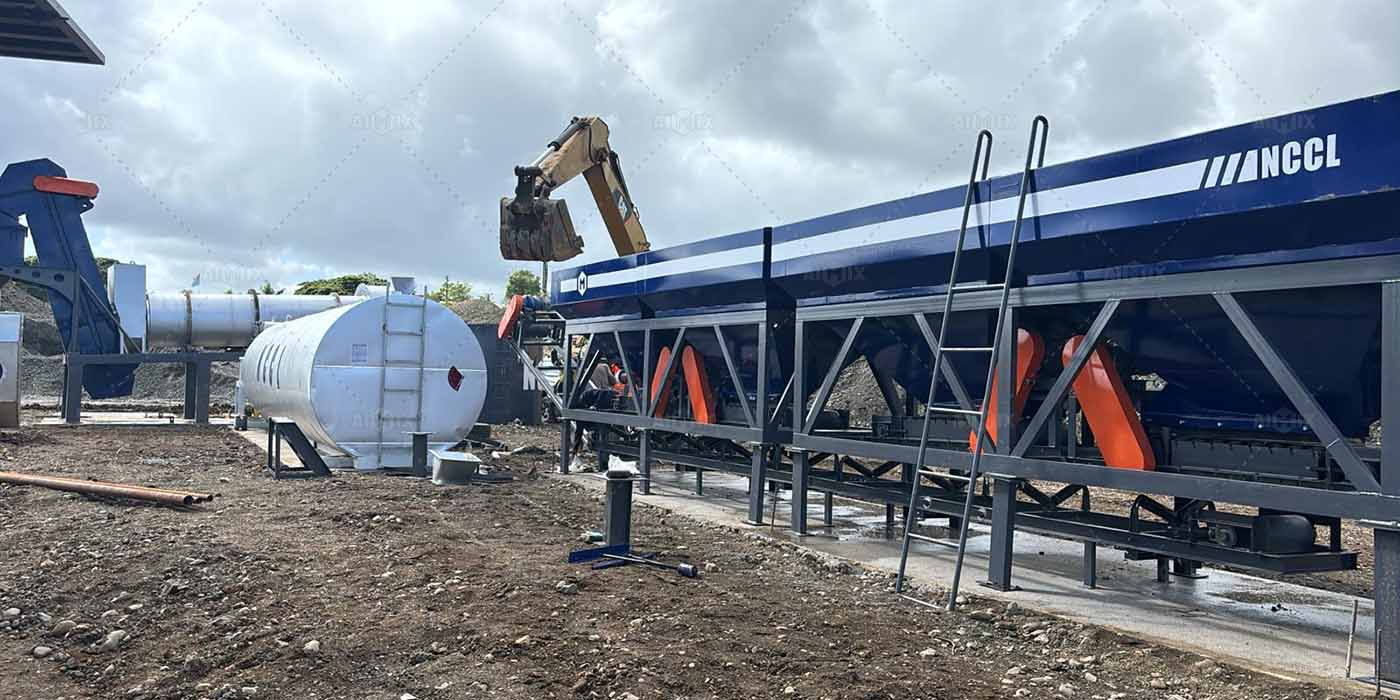
Calculating Production Speed for 400 Tons
To put it into perspective, if you choose a 60 TPH mini asphalt plant, you can produce 400 tons in less than 7 hours of operation spread across 2–3 days. This schedule allows for breaks during heavy rain while still meeting deadlines.
For contractors with tighter deadlines, an 80 TPH model can shorten the production time further, giving more flexibility for site paving work.
Cost and Efficiency Considerations
In rainy season projects, delays mean extra costs. Producing asphalt on-site or near the site can reduce fuel use, lower transportation expenses, and prevent material waste. Mini asphalt plants require less foundation work, so you avoid expensive setup delays. Their lower maintenance requirements also mean fewer breakdowns during the critical project period.
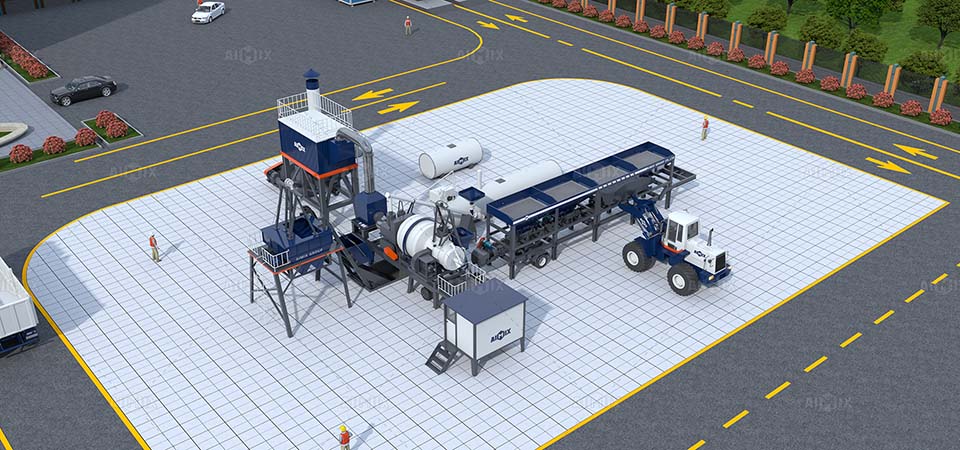
Real-World Application Example
One road contractor in Sulawesi used 60 TPH mobile asphalt mixing plants for sale to supply 400 tons for a local road repair project. By positioning the plant within 5 km of the site, they avoided major transport delays and completed production in 2 days, despite heavy afternoon rains. This example proves that with the right plant choice, weather does not have to stop your project.
Choosing the Right Partner for Your Mini Asphalt Plant
The right equipment is important, but so is having a supplier who understands your project conditions. Look for a partner who can provide technical advice, local support, and spare parts quickly. During the rainy season, every hour counts, and reliable after-sales service can save you from costly downtime.
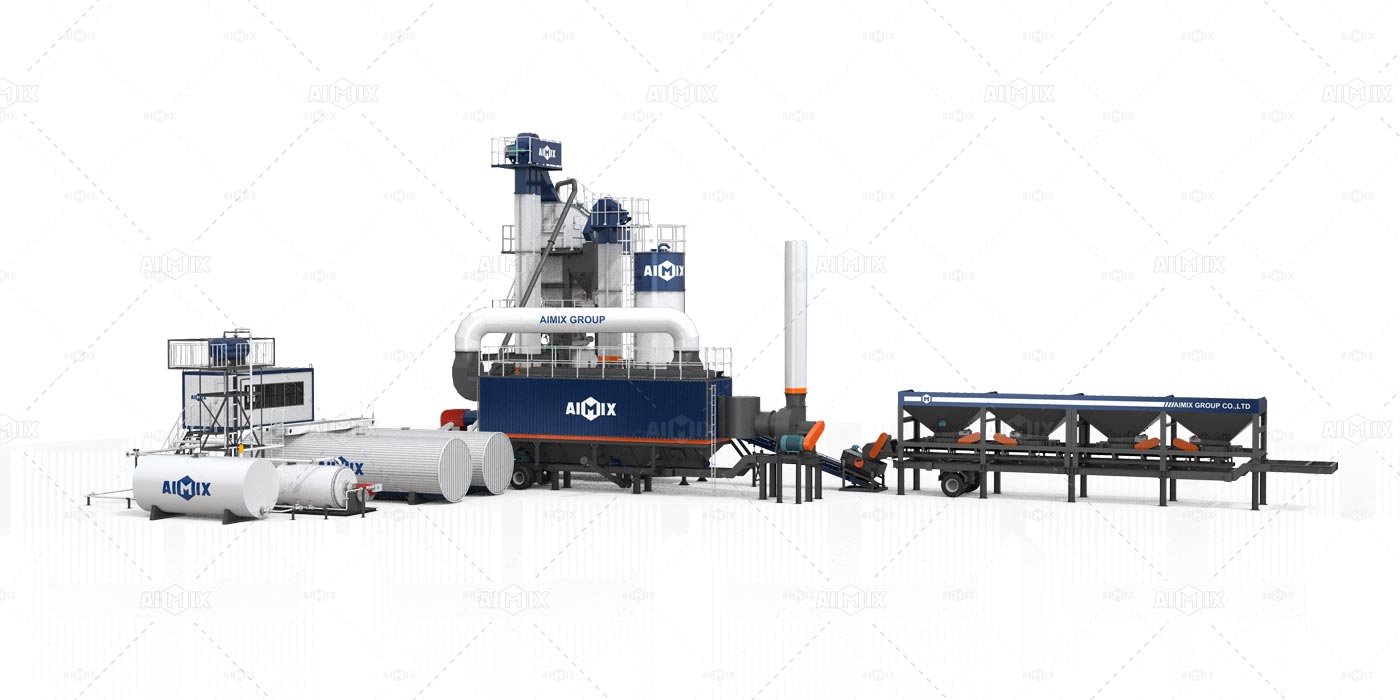
Conclusion: Be Ready for Rain and Deadlines
Producing 400 tons of asphalt during the rainy season is challenging, but with a well-chosen mini asphalt plant, you can keep your project on track. Focus on drying efficiency, mobility, mixing quality, and service support when making your choice.
Work with Us for Reliable Asphalt Production
At AIMIX, we understand the realities of construction in Indonesia’s rainy season. Our range of mini asphalt mixing plants is designed for fast setup, stable performance, and efficient drying. Whether you need 40 TPH or 80 TPH, we can recommend the best configuration for your 400-ton target. We also provide local installation, training, and spare parts to keep your production running without delays. Contact us today to discuss your project needs and secure a plant that performs—rain or shine. For more: view our articles about larger asphalt plants!
Leave a Reply